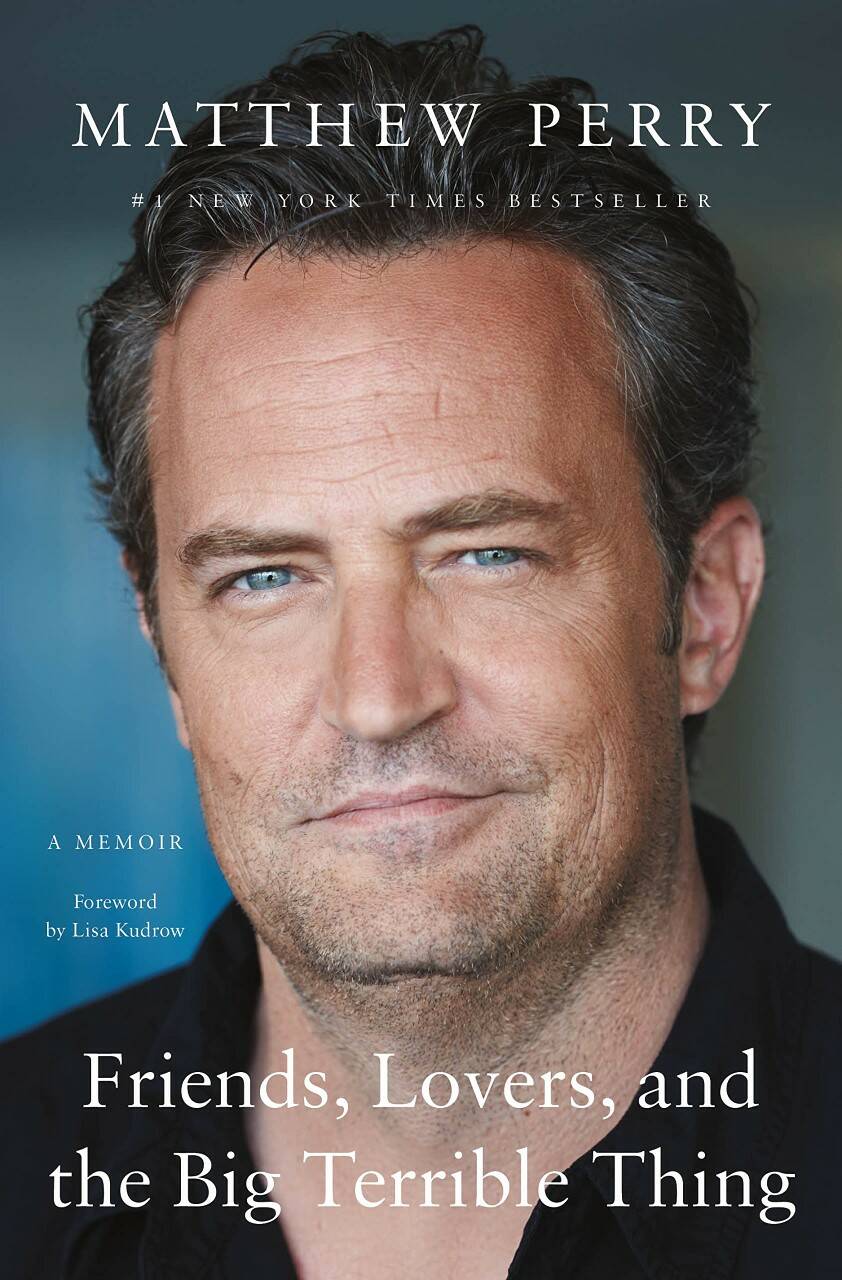Perry to be remembered as a lighthouse in the darkness of addiction — and as Chandler Bing
Advertisement
Read this article for free:
or
Already have an account? Log in here »
To continue reading, please subscribe:
Monthly Digital Subscription
$0 for the first 4 weeks*
- Enjoy unlimited reading on winnipegfreepress.com
- Read the E-Edition, our digital replica newspaper
- Access News Break, our award-winning app
- Play interactive puzzles
*No charge for 4 weeks then price increases to the regular rate of $19.00 plus GST every four weeks. Offer available to new and qualified returning subscribers only. Cancel any time.
Monthly Digital Subscription
$4.75/week*
- Enjoy unlimited reading on winnipegfreepress.com
- Read the E-Edition, our digital replica newspaper
- Access News Break, our award-winning app
- Play interactive puzzles
*Billed as $19 plus GST every four weeks. Cancel any time.
To continue reading, please subscribe:
Add Free Press access to your Brandon Sun subscription for only an additional
$1 for the first 4 weeks*
*Your next subscription payment will increase by $1.00 and you will be charged $16.99 plus GST for four weeks. After four weeks, your payment will increase to $23.99 plus GST every four weeks.
Read unlimited articles for free today:
or
Already have an account? Log in here »
Hey there, time traveller!
This article was published 01/11/2023 (769 days ago), so information in it may no longer be current.
Matthew Perry just wanted to help people.
That was the throughline in his revealing 2022 memoir, Friends, Lovers and the Big Terrible Thing, and a throughline in the interviews he gave supporting it — including a viral clip from an interview with Tom Power on CBC’s Q.
“The best thing about me, bar none, is if somebody comes up to me and says ‘I can’t stop drinking, can you help me?’ I can say yes and follow up and do it. That’s the best thing,” the actor told Power to applause.

“And, I’ve said this for a long time, when I die, I don’t want Friends to be the first thing that’s mentioned. I want that to be the first thing that’s mentioned. And I’m going to live the rest of my life proving that.”
When Perry died on Saturday at the age of 54, it was shocking and sad. Here was a man who had been trying so hard to live, despite, as he tells it in his book, having a brain that wanted him dead — and he’d come close, several times.
His openness and honesty around addiction helped others be open and honest. He didn’t shy away from providing, in excruciating detail, he incredible toll it took on his work, his mental health, his body (a blown colon, a coma), and his finances (“I’ve probably spent $9 million or something trying to get sober,” he told the New York Times).
You don’t have to look far or hard to find tributes from people who credit Perry with helping them get sober.
But as a fan, I can’t help but wish he could have been more proud of his work as Chandler Bing on Friends.
As the sarcastic and often surprisingly sensitive friend on the megahit NBC sitcom, Chandler was a fan favourite from the jump — in no small part because of what Perry brought to the role. He was, unto himself, a masterclass in comedic timing. His signature inflection — “could I BE any more….” — literally changed the way people talk.
Chandler, I’d submit, is one of the reasons Friends has had the enduring cultural impact it’s had, finding new life well beyond its original 10-season run from 1994 to 2004.
When the show arrived on Netflix in 2015, Friends earned a legion of new gen-Z fans, many of whom were born after the series ended; it’s perhaps not surprising that a generation that communicates via memes and TikTok videos might find kinship in a guy who uses humour as a defence mechanism.
But in his portrayal of Chandler, Perry offered more than precision one-liners, though he certainly did that — including the one that closes the series. Chandler had a pile of unprocessed childhood trauma and was often painfully insecure, despite his quick wit and winning smile, and Perry deftly explored those sides of him, too.
After Friends moved to HBO Max (Crave in Canada), it became a comfort watch during the pandemic, as cosy and familiar as the couch at Central Perk. This show has been there for so many people through so many things.
So yes, Friends has often been the first thing that’s mentioned. There are the tributes in the convention of Friends episode titles — The One Where We Lost a Friend, The One Where Our Hearts Are Broken — and referential art.
In the most touching tribute I’ve seen, Lucy Claire Dunbar, a U.K. artist, has Chandler Bing, sweater vest and all, walking away with the chick and the duck.
But for Perry, Friends was a painful, unwatchable reminder of his addiction, the height of which overlapped with the height of his career. Viewers could see the story of his addiction play out in Chandler’s changing appearance, an effect made more shocking in the era of bingeing. What would have been gradual to weekly viewers (with summers off) is now jarring.
One of the most heartbreaking lines in Perry’s memoir is a revelation about one of the most iconic moments of an iconic show: “I married Monica and got driven back to the treatment centre.” It’s telling he’s writing as both Chandler and Matthew here, the two were so inextricably linked.
Even Chandler’s ever-quotable cadence, which began as a joke among Perry and his buddies growing up in Ottawa and which he himself brought to the show, began to chafe. “Could it be more annoying?” he asks in his book.
It’s a shame Perry couldn’t enjoy — or sometimes even see — just how good he was as Chandler. It’s another thing his disease stole from him.
We can’t control how we’re remembered after we die. But Perry can rest assured that he will be remembered the way he wanted to be. Because whether it’s by making generations of people laugh on their darkest days as Chandler Bing or acting as a lighthouse in the darkness of addiction as Matthew Perry, he helped people.
More, I would bet, than he could ever know.
jen.zoratti@winnipegfreepress.com

Jen Zoratti is a columnist and feature writer working in the Arts & Life department, as well as the author of the weekly newsletter NEXT. A National Newspaper Award finalist for arts and entertainment writing, Jen is a graduate of the Creative Communications program at RRC Polytech and was a music writer before joining the Free Press in 2013. Read more about Jen.
Every piece of reporting Jen produces is reviewed by an editing team before it is posted online or published in print – part of the Free Press‘s tradition, since 1872, of producing reliable independent journalism. Read more about Free Press’s history and mandate, and learn how our newsroom operates.
Our newsroom depends on a growing audience of readers to power our journalism. If you are not a paid reader, please consider becoming a subscriber.
Our newsroom depends on its audience of readers to power our journalism. Thank you for your support.







